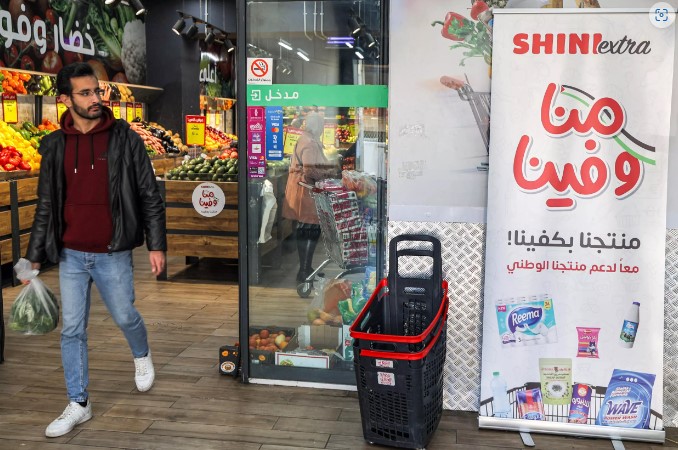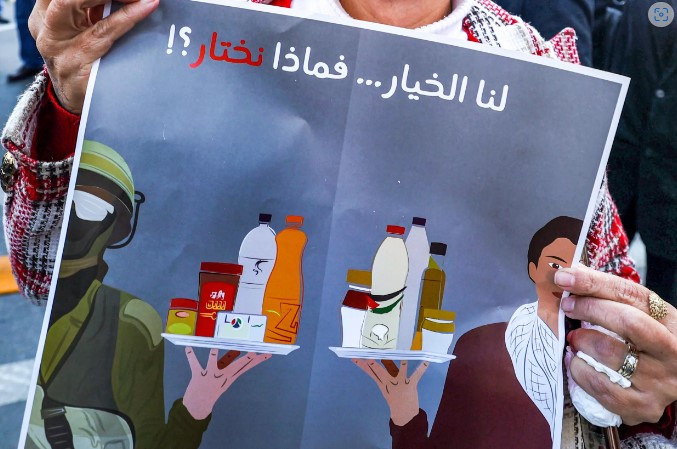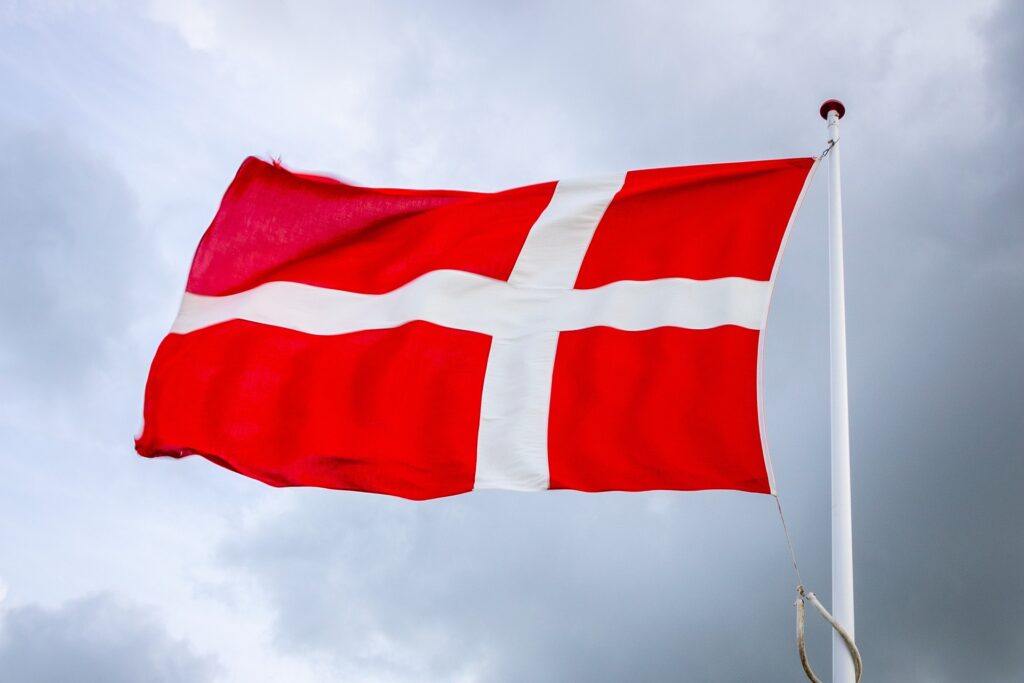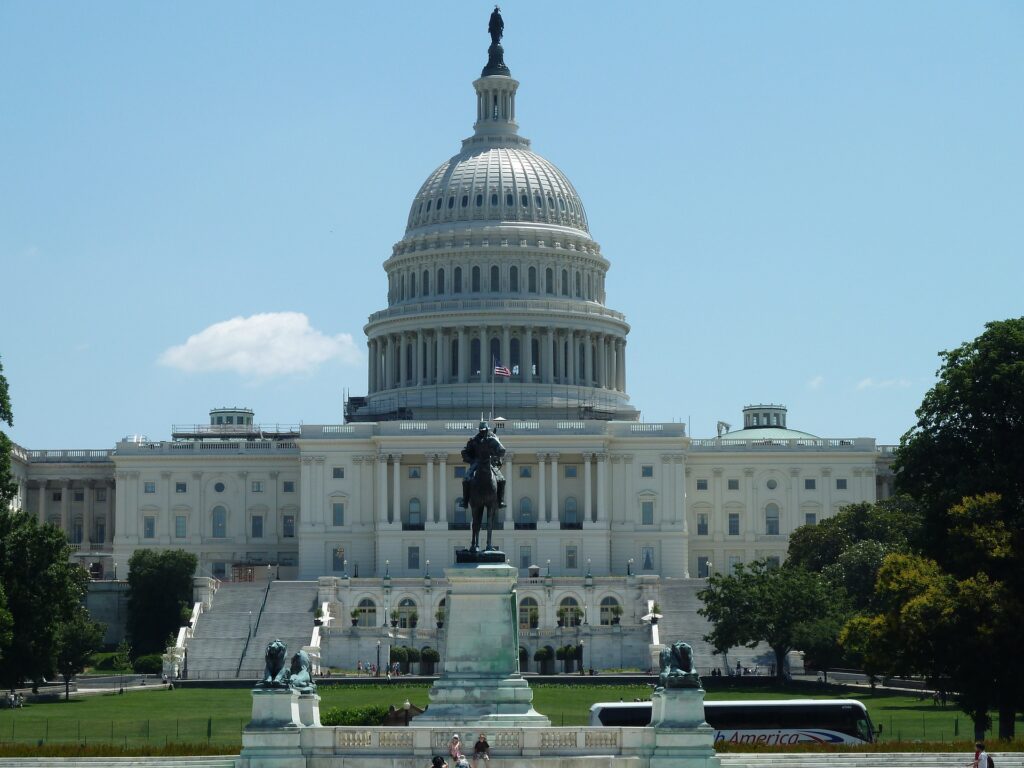
Palestinian products Campaign Gains Traction
The Gaza war kicked off a grassroots movement in the occupied West Bank, calling on Palestinians to boycott Israeli products and switch over instead to Palestinian products ones. These posters, stickers, and leaflets urging the slogan “Let us do it for ourselves” have been plastered on walls in towns throughout the country – a new line of attack promoting buying Palestinian products. This is a big change in consumer behavior, with particularly young people becoming more politicized and choosing products that not only suit their aesthetic tastes but also express some part of themselves as proper citizens. The widespread use of this slogan in widely-known supermarket chains represents a mass initiative to raise and promote Palestinian products on the shelves. The campaign is also gathering pace, reflecting the overwhelming determination of Palestinian people to resist geopolitical tensions by promoting economic independence and purchasing local products. This is actual evidence that the initiative was a local one, serving to create both solidarity and strength as consumers promote products produced in their own countries.
Impact on Retail: A 30% Drop in Israeli Product Sales
Many leading supermarket chains in the West Bank have become centers for this campaign. They are actively promoting it by widely advertising a range of “Made-in-Palestine” products, which even include such common necessities as water, milk, and toilet paper. The positioning of these regionally supplied products within such establishments further confirms the ideology of economic independence and sisterhood. The campaign’s success is shown by figures that indicate that sales of Israeli products have fallen an estimated 30 % in these supermarkets since the outset of the Israel-Hamas war. This change has not only demonstrated an actual effect on consumer habits but also represents a joint decision among the West Bank population to aid their industries–a move which adds even further impetus behind the boycott movement.
Escalation of Violence and Boycott Movement
At the same time, with the war between Israel and Hamas breaking out in October, tensions have increased in the West Bank as well. The number of Palestinian casualties now stands at more than 300 dead or wounded. In reaction to the worsening conflict, boycotting Israeli products has become popular. The younger generation is particularly active in this movement. As more and more of the West Bank’s young people develop a political consciousness, many seek out Palestinian alternatives to protest against this continuous hostility. While not intended as an economic boycott, it has been quite visible. The solidarity of the movement reflects a general desire to do something for the economy just because such grave tragedies are occurring in one part of this region after another. These changing patterns of consumer behavior reflect the growing resolve among West Bank people to tackle the broader socio-political challenges bred by conflict.

Global Reach: Boycott, Divestment and Sanctions (BDS)
Formulated by Palestinian civil society organizations in 2005, the Boycott, Divestment, and Sanctions (BDS) movement started locally but quickly gained global momentum. It now has active branches in 40 countries around the world. Omar Barghouti, co-founder of the BDS movement says that whatever criticism leveled against his group about anti -Semitism will never change its solid position on opposing racism in all forms. Based on the effective anti-apartheid struggle in South Africa, BDS calls for using economic and political pressure to resolve this ongoing problem of Israeli-Palestinian relations. BDS calls for an end to Israel’s 1967 military occupation, the dismantling of its apartheid system, and respecting Palestinian refugee rights – a global movement promoting justice and equality in Palestine. Its great success attests to the extent of international opinion on a just and equitable solution to this centuries-old conflict.
Divergent Perspectives: Practicality of Boycott
Boycott momentum building Now there are dissenting voices within the West Bank itself, who argue that a comprehensive boycott of goods and services is simply not possible. The security restrictions imposed by the Israelis on parts of the West Bank have caused major economic headaches for Palestinian households. The fact is that businesses face a complex reality, and the community has been forced to have an intimate debate over whether it well can or should completely disengage itself from Israeli products. Some want a total boycott as symbolic defiance. Others argue that the economic interweaving is too complicated for such radical action. This inner dialogue is indicative of the multifaceted complexities involved in all these questions. Practical considerations coexist alongside much broader aspects of the boycott movement within the West Bank.
International Support and Non-Violent Advocacy
During this growing debate about the boycott’s practicality, BDS has become a talk of international proportions. Ofer Neiman, an Israeli member of the group affirms that international pressure is essential for effecting real change. The campaign is a non-violent means of promoting human rights and justice, says Neiman. It can be an extremely potent instrument for change. An endorsement by an Israeli member highlights the wide range of support for this movement and reveals that people within the region understand all too well how difficult it is to resolve such complexities as today’s situation in Israel-Palestine without outside assistance. Now that the campaign is spreading around the world, it magnifies those who seek transformation through diplomatic and non-violent methods.
Read More: Legal Battle of Pakistan Tehreek-i-Insaf for the ‘Bat’ starts from Peshawar High Court


